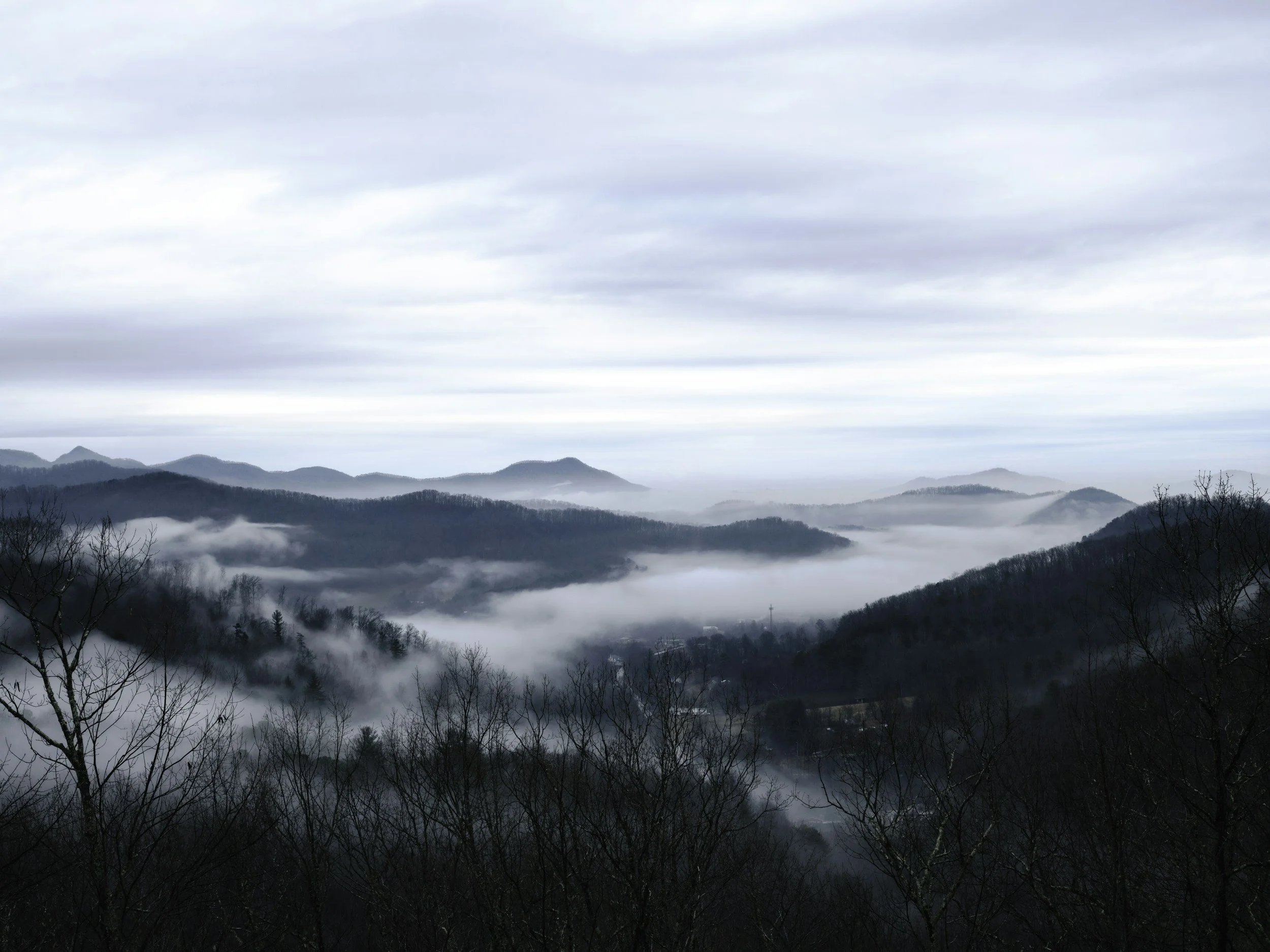My Kingdom
by Tresta Payne
MY KINGDOM
As new empty-nesters, we recently relocated to a community over an hour away from where we invested most of our lives. These changes feel monumental. We didn’t plan to move away from our hometown and simultaneously see our last child leave the nest, but that’s how it happened.
There are aspects of this move that have been very hard, decisions that felt out of our control. But we’ve been placed in a beautiful location, only an hour from most of our children and grandchildren, at nearly the top of a gorgeous mountain.
We moved from our beloved mountain valley, or what my husband more accurately called a “mountain meadow.” State Highway 42 climbs up and up until it opens to a valley encircled by mountains, where the fog rolls over in waves from the Pacific. My camera roll is full of this fog phenomenon, as well as the purple camas flowers in spring, the herd of elk out our dining room window, and the golden grass of fall in our pasture. For most of our thirty years there, I regularly walked or ran the same gravel road into the mountains—from the time I was pregnant with my first baby, to just a few months ago with my grandsons.
We are in an entirely new place now, and I don’t know these mountains yet. After nearly two months, I still wave at each car that passes me on the narrow roads. In our valley home, that was the way. You recognized new folks because they hadn’t caught on to the wave yet. My goal was always conversion.
Now I am probably recognized as the newbie, because I catch myself waving at strangers—they don’t wave back. My goal is still conversion.
I know only my most immediate neighbors. I am too far out of the way for anyone to stop by unannounced. I’m not sure why we’re here or for how long. The metaphor is backwards, but this mountain feels like a valley.
I’ve been alone in this new home on a new mountain for almost two weeks. My husband is in the Eagle Cap Wilderness on a bow-hunting trip with two of our boys. The Eagle Caps are gorgeous, rugged, and remote, and for two weeks, they have eaten their freeze-dried meals and hiked a hundred or more miles, without hunting success, but with plenty of stories, photos, and videos. Time on the mountain is a good break for my busy husband.
“Wherever I am, the world comes after me,” says Mary Oliver in The Old Poets of China. But the world doesn’t find you when you’re 20 miles deep into the wilderness with no phone service. Oliver says she understands why the old poets went into the mountains and crept into the mist. My husband understands it, too. It is good for his soul, but it takes a toll on his body. He will return blistered, bruised, and tired.
Being alone hasn’t bothered me in the ways I anticipated. The move was disorienting, but I feel safe here. I can see what’s coming—or at least I think I can. One morning, I stood looking out a second-story window into the woods. I thought I was staring at a coyote, but without my glasses, it might have been a tall stump. Coyotes don’t bother me; it’s the cougars lurking in the woods that keep me alert. I watched it for a long time. Finally, I opened the window as loudly as I could, believing that if it were a coyote, it would startle. The stump stood staring at me. I closed the window, a little sad that I had not been making eye contact with a wild creature. The stump whirled away with a whoosh of its fluffy tail, disappearing into the woods.
The next day, I disappeared into the woods with the two dogs. We hiked to the top, where the world opens up to blue sky and fading summer grass, and I saw the tail end of a coyote again as it fled over the steep bank.
From the other side of the state, my husband found a satellite signal on the top of his mountain. He texted me the Scriptures he’d been reading and strengthened me with comforting words about the questions of this new season of our lives. We are trying to be patient together, but I feel some of the answers may be staring at us. Perhaps we are passing over the obvious. We may need to hear the same thing several times before we get it. The tail end of understanding keeps slipping over the bank.
I’ve been reading the same Scriptures for weeks now, steeping myself in the Sermon on the Mount. I want to know what Jesus means when he says blessed are the poor in spirit, the meek, the merciful. I want to know what peacemaking looks like in a world like ours, and why, in the sermon, it comes between the pure and the persecuted.
I think form matters.
I think Jesus climbed up that mountain and delivered his message thoughtfully—to those who would climb with him and listen. I don’t think his teaching was a random smattering of good ideas, all lumped together. The order, the form, the delivery method, the climb to get there—it all matters. I read different translations of Matthew 5 through 7, and my questions linger, but from the middle of the sermon, this stares at me:
Seek first the kingdom of God and his righteousness, and all these things will be provided for you (Matthew 6:33, CSB).
I take possession of the places that are special to me, calling them “mine”—my valley, my road, my mountain. When Jesus says “theirs is the kingdom of heaven,” he gives the kingdom we are supposed to be looking for to the poor in spirit—those who are not spiritually arrogant.
I don’t know exactly what that means, but I understand and believe that the most precious place we could possess would be the kingdom of heaven. Possessing that is something entirely different from owning a home or property. It’s more that we are possessed by the kingdom—owned, claimed. Our kingdom is heaven, if we are poor in spirit. We are its citizens.
I think we will find answers when and where God wants us to, as we do the work of seeking his kingdom, wherever we are. We travel with Jesus up the mountain, to sit at his feet and listen, and I am that person raising my hand with lots of questions. But he is with us in the valleys.
All these things are provided, and maybe the answers are staring right at us.
TRESTA PAYNE
Tresta Payne writes about small things like forest mushrooms and big things like grief and the goodness of God. She is a regular contributor at Cultivating Oaks Press and has written for Fathom Mag, Joyful Life Magazine, and her local newspaper. With 23 years of homeschooling and 8 years coaching high school volleyball behind her, she has learned the value of a good story and good listening. She is finishing up work on her first book and writes on her Substack, More Beautiful Than Necessary. Tresta lives in southern Oregon with her husband, Tim, and her good-girl, Scout.


